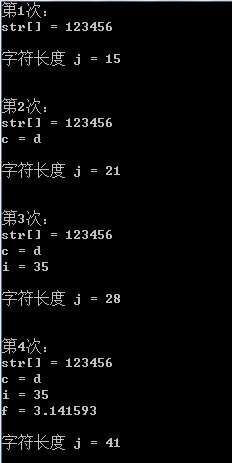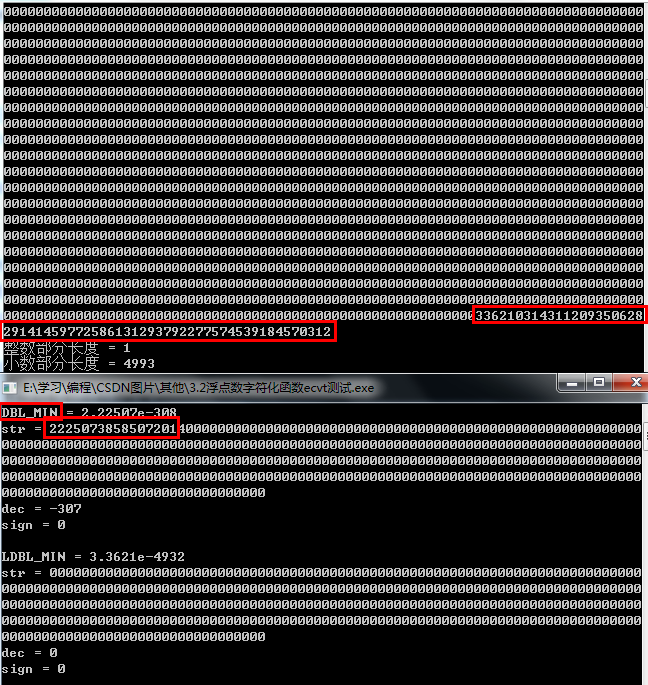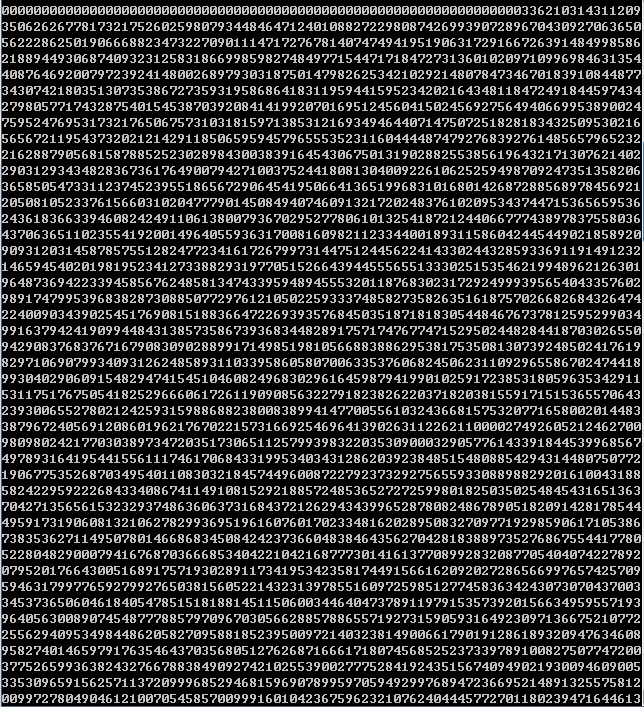浮点数 转 字符 - sprintf
目录
- 1 背景
- 2 方法:文件、sprintf()、自写函数、ecvt()函数
-
- 2.1 文件读取
- 2.2 sprintf()函数
-
- 读取 LDBL_MIN
- 2.3 自写函数
- 2.4 ecvt()函数
- 2.5 效果运行比较
1 背景
把很小的数,它接近0但不等于0
通过计算过程中,会有精度丢失的可能!
解决的方法:把浮点数 字符串化,这样精度就不会丢失了
2 方法:文件、sprintf()、自写函数、ecvt()函数
| 文件读取 | sprintf() | 自写函数 | ecvt()函数 |
|---|---|---|---|
| 效果最好 | 效果最好 | 效果好 | 效果稍差 |
| 速度快 | 几乎没有限制 速度快 |
限制多 | 限制少 |
2.1 文件读取
效果最好
见 https://blog.csdn.net/qq_40893824/article/details/105997362 1.3.1 小节
2.2 sprintf()函数
sprintf 跟 printf 用法上区别:
前者打印到字符串中
后者直接在命令行上输出
效果最好,速度还快,不知道复杂度是多少
解析:
int sprintf(char *string, char *format [,argument,...]);
int j = sprintf( buffer, " String: %s\n", s);
j = 返回写入的字符总数
buffer = string
" String: %s\n" = char *format
, s = [,argument,...]
基本使用代码:
#include
读取 LDBL_MIN
#include效果对比见 2.5
2.3 自写函数
思路:
注意正负号的处理!
- 把浮点数 (double)number 分为两部分 = 整数部分int_t 和 小数部分temp
int_t = (long long)number/1;
temp = number - int_t; - ini_t对10取余,将其存进字符数组首位,int_t = int_t/10; 继续循环刚刚的操作,直到int_t == 0 成立,就结束循环,将此时的字符数组前后元素一次交换
- 把 小数点’.'存进字符数组里,int_t = temp * 10; int_t对10取余存进字符数组,temp = temp*10 - int_t; 继续循环刚刚的操作,直到temp == 0 成立
- 把最后的 ‘\0’ 放进字符数组末尾
#include2.4 ecvt()函数
char* ecvt(double value, int ndigit, int *decpt, int *sign);
把一个双精度浮点数转换成一个字符串。
- value:要转换的浮点数
存储最多ndigit个数字值作为字符串,并添加 ‘\0’,value中数字个数超过ndigit,低位数字被舍入。少于ndigit个数字,用0填充。 - decpt:小数点位置的整数值, 从字符串的开头位置计算
0或负数指出小数点在第一个数字的左边。 - sign:数的符号
如果该整数为0,这个符号数为正数,否则为负数。
#include
2.5 效果运行比较
上:自写函数;下:ecvt()函数
和 sprintf() 比较的话…

可以看到,自己编写的函数得到的有效数字 要比 ecvt()函数要多一些,但远远不如 sprintf()!
ecvt() 读不了LDBL_MIN,但自己写的函数勉强可以


